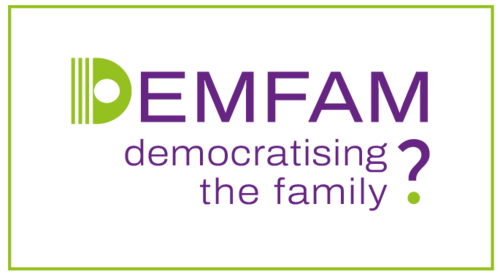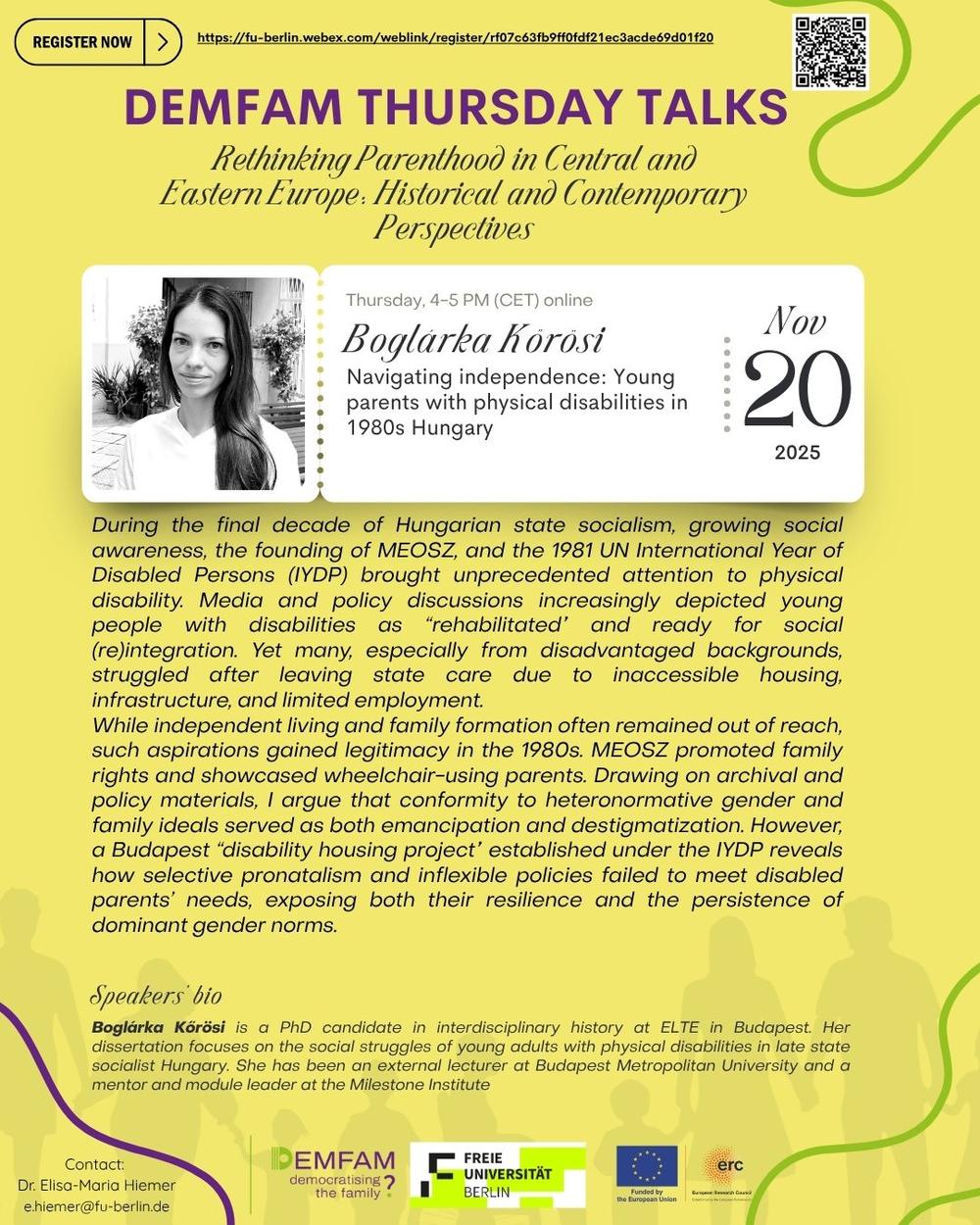DEMFAM Thursday Talks: Boglárka Kőrösi on "Navigating independence: Young parents with physical disabilities in 1980s Hungary"
Boglárka Kőrösi "Navigating independence: Young parents with physical disabilities in 1980s Hungary"
Register now: https://fu-berlin.webex.com/weblink/register/rf07c63fb9ff0fdf21ec3acde69d01f20
During the final decade of Hungarian state socialism, growing social awareness, the founding of MEOSZ, and the 1981 UN International Year of Disabled Persons (IYDP) brought unprecedented attention to physical disability. Media and policy discussions increasingly depicted young people with disabilities as “rehabilitated” and ready for social (re)integration. Yet many, especially from disadvantaged backgrounds, struggled after leaving state care due to inaccessible housing,
infrastructure, and limited employment.
While independent living and family formation often remained out of reach, such aspirations gained legitimacy in the 1980s. MEOSZ promoted family rights and showcased wheelchair-using parents. Drawing on archival and policy materials, I argue that conformity to heteronormative gender and family ideals served as both emancipation and destigmatization. However,
a Budapest “disability housing project” established under the IYDP reveals how selective pronatalism and inflexible policies failed to meet disabled parents’ needs, exposing both their resilience and the persistence of dominant gender norms.
Speakers’ bio:
Boglárka Kőrösi is a PhD candidate in interdisciplinary history at ELTE in Budapest. Her dissertation focuses on the social struggles of young adults with physical disabilities in late state socialist Hungary. She has been an external lecturer at Budapest Metropolitan University and a mentor and module leader at the Milestone Institute.

